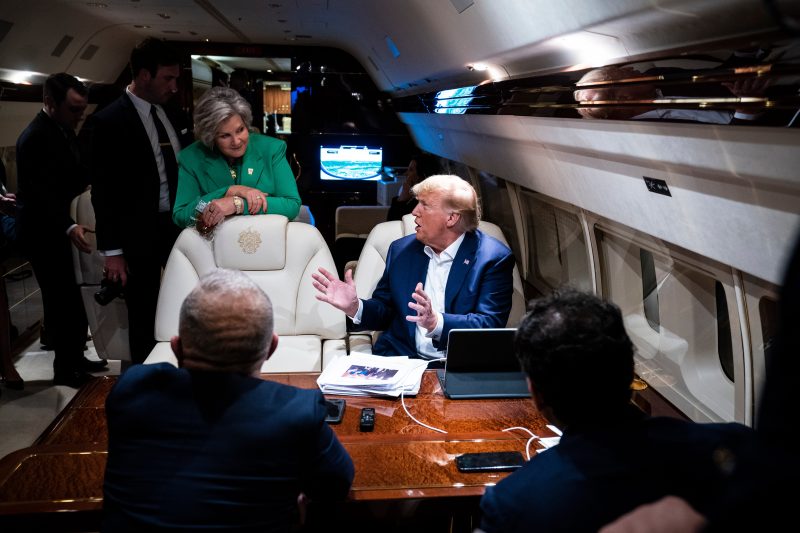
From Promises to Pools: Trump’s Unfulfilled ‘Swamp-Draining’ Pledge
In the fast-paced world of politics, promises made during a campaign often face scrutiny once the candidate assumes office. No clearer example of this can be seen than in the case of former President Donald Trump. Eight years ago, Trump made a bold vow to drain the swamp, promising to upend the status quo in Washington, D.C., and rid the government of corruption and self-serving interests.
However, as time passed and Trump’s presidency unfolded, it became apparent to many observers that the reality did not align with the promise. Instead of draining the swamp, Trump found himself swimming in it, surrounded by controversies, conflicts of interest, and questionable decisions that raised serious ethical concerns.
One of the primary criticisms leveled against Trump was his failure to divest from his business interests upon assuming the presidency. This decision meant that Trump continued to profit from his businesses while in office, creating numerous potential conflicts of interest. Critics argued that this arrangement allowed foreign governments and special interest groups to influence the president through his financial ties, undermining the integrity of the office.
Furthermore, Trump’s administration was marred by a series of scandals, many of which involved his inner circle and close advisors. From the indictment of campaign officials like Paul Manafort and Michael Cohen to the controversial pardons granted to political allies, Trump’s presidency was dogged by allegations of corruption and abuse of power.
Another significant issue that arose during Trump’s tenure was his administration’s handling of environmental policies. Despite his promise to prioritize American interests, Trump rolled back numerous environmental regulations and withdrew the United States from the Paris Climate Agreement, a move that was criticized both domestically and internationally.
In addition to these policy decisions, Trump’s combative and divisive rhetoric further polarized an already deeply divided nation. His tendency to attack political opponents, the media, and even members of his own party fostered a climate of hostility and distrust, further eroding the public’s faith in the political system.
In conclusion, Trump’s failure to fulfill his promise to drain the swamp stands as a cautionary tale of the complexities and challenges of governance. Despite his initial intentions, Trump’s presidency was marked by allegations of corruption, conflicts of interest, and a departure from ethical norms. As the political landscape continues to evolve, the legacy of Trump’s administration serves as a reminder of the importance of accountability, transparency, and integrity in public service.
